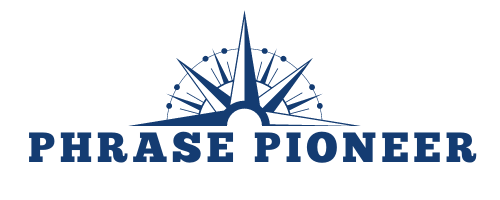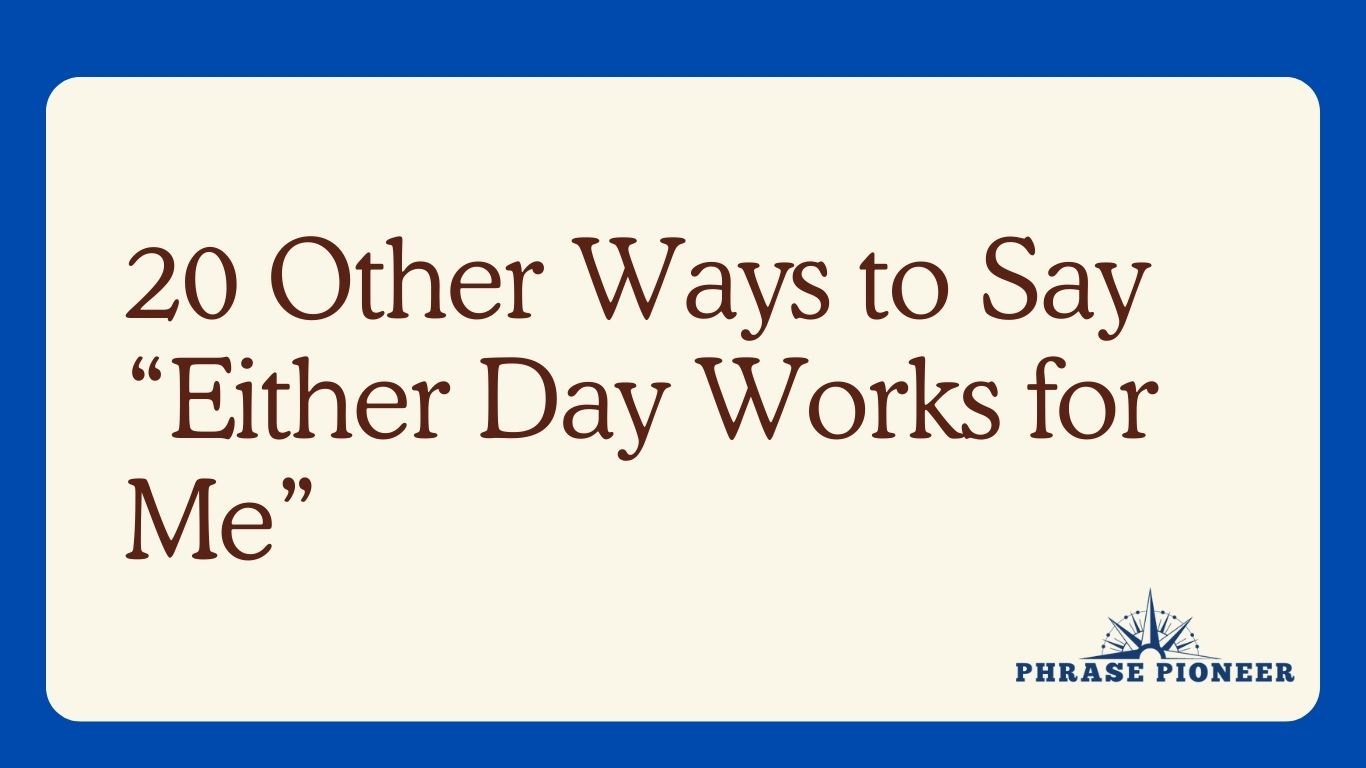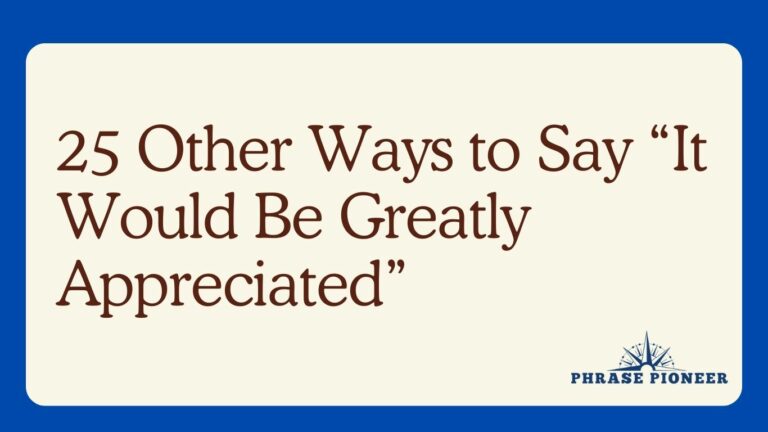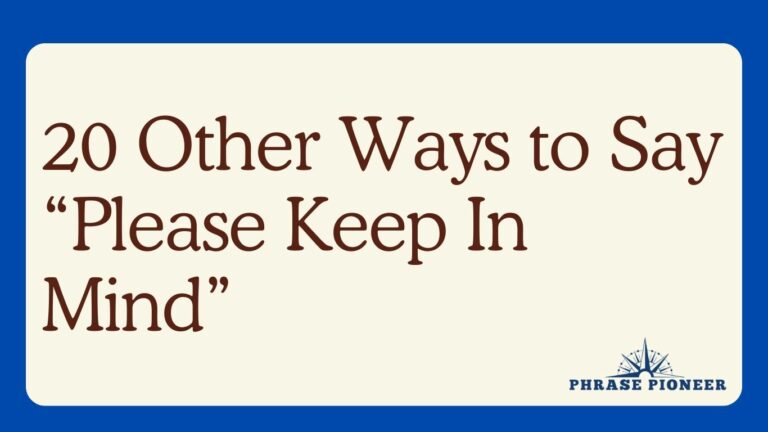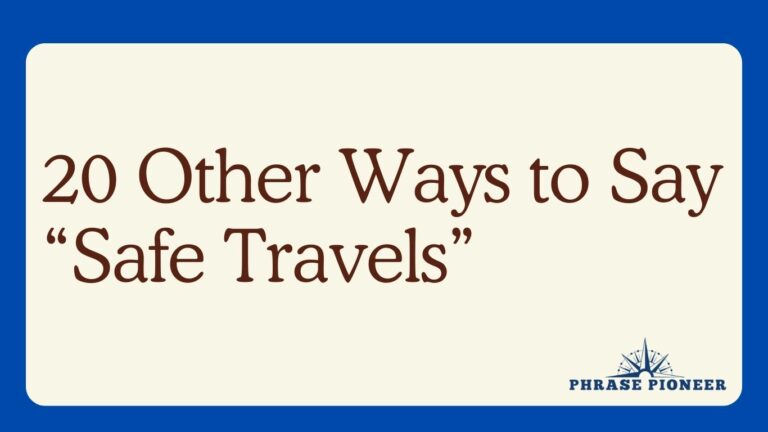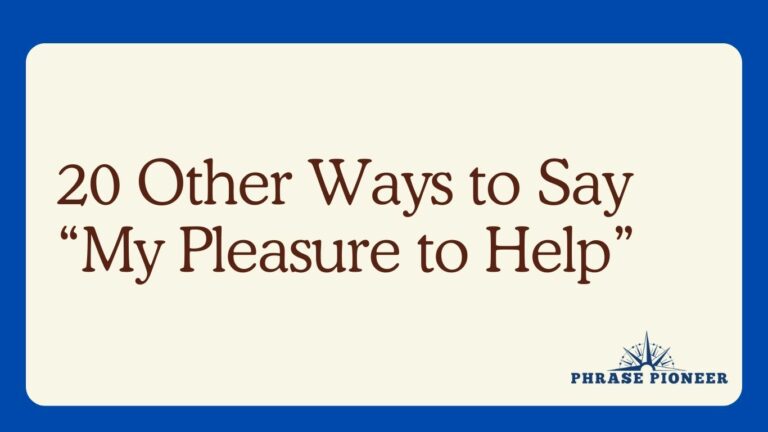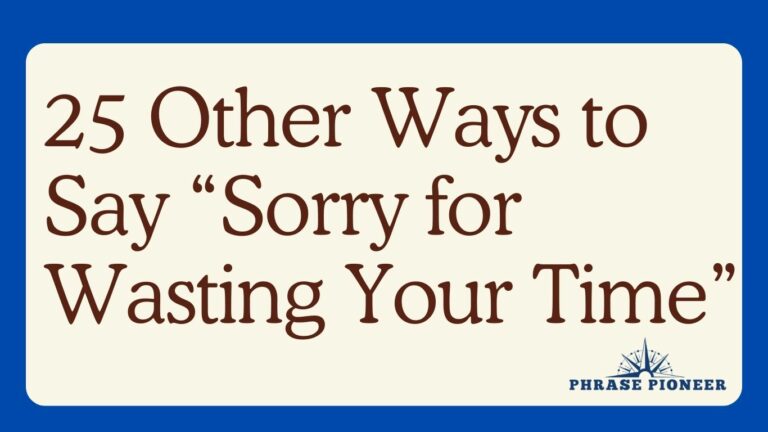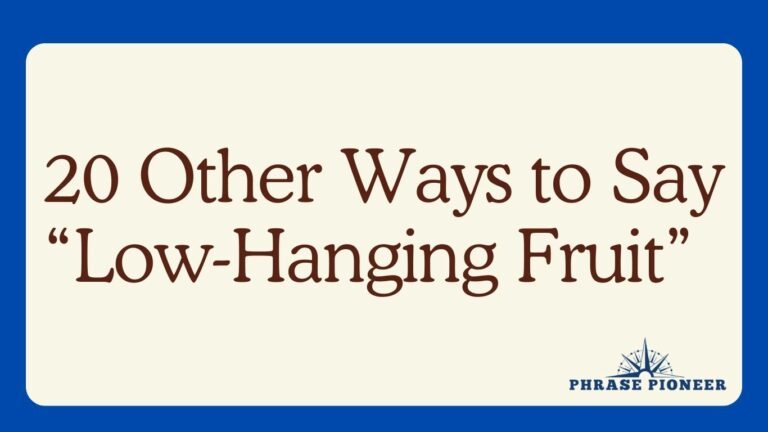20 Other Ways to Say “Either Day Works for Me”
When coordinating meetings or planning events, flexibility is a valuable trait. The phrase “Either day works for me” is a common way to express that you are adaptable to multiple date options, which can greatly facilitate scheduling.
However, in the interests of variety and sometimes clarity, it’s beneficial to have different phrases at your disposal. Whether you’re in a professional setting or making plans with friends, here are 20 alternative ways to communicate your open availability, each suited to keep the tone appropriate and the conversation flowing smoothly.
Professional Flexibility
Both Dates Are Equally Convenient
Example: “Both dates are equally convenient for my schedule.” Explanation: This phrase maintains a professional tone by emphasizing balance and consideration in choosing either option.
I Have Flexibility on Those Days
Example: “I have flexibility on those days, so please choose the one that best suits the rest of the team.” Explanation: It highlights your adaptability while also showing consideration for others’ schedules.
I Can Make Room for Either Option
Example: “I can make room for either option, so go ahead and select the date that works best for you.” Explanation: This expression of adaptability is especially apt for someone who typically has a busy schedule but is willing to accommodate.
Either Date Fits My Itinerary
Example: “Looking at the upcoming week, either date fits my itinerary well.” Explanation: Particularly useful in a travel or multi-appointment context, this indicates compatibility with planned activities or meetings.
I Am Open to Both Suggestions
Example: “I am open to both suggestions; feel free to confirm the time that is most convenient for everyone.” Explanation: It shows a readiness to agree to others’ preferences, fostering a collaborative decision-making process.
Casual Options
I’m Good for Either
Example: “Lunch sounds great! I’m good for either day.” Explanation: A casual and easy-going response, ideal for informal situations or when making plans with friends.
Any of Those Days Work for Me
Example: “Movie night? Sure, any of those days work for me.” Explanation: This is another laid-back alternative that conveys flexibility without a preference.
I’m Easy, Pick a Day
Example: “I’m easy, pick a day and I’ll be there.” Explanation: Informal and colloquial, this phrase denotes that you’re relaxed about the choice and happy to go with the flow.
You Can Call the Shots on the Day
Example: “You can call the shots on the day; I’m free for both.” Explanation: This informal phrase gives the other person the ability to decide, showing full flexibility on your part.
Either Works, Let’s Lock It In
Example: “Either works for me, let’s lock it in!” Explanation: This conveys not just flexibility but also enthusiasm about finalizing the plans.
Neutral Statements
Either Is Fine by Me
Example: “Should we go for Thai or Italian? Either is fine by me.” Explanation: It’s a neutral and commonly used phrase that indicates no strong preference for either option.
Both Days Are Good for Me
Example: “If you’re looking to schedule the appointment, both days are good for me.” Explanation: This straightforward phrase clearly communicates availability on two options without showing a preference.
I’m Open on Both Days
Example: “Regarding the conference, I’m open on both days, whichever suits the agenda.” Explanation: ‘Open’ implies a certain degree of availability and willingness to fit into another’s schedule.
There’s No Difference to Me
Example: “There’s no difference to me; I can meet on Monday or Tuesday.” Explanation: A direct way of saying that both days are equally suitable.
Whichever You Prefer Works for Me
Example: “Whichever you prefer works for me, so feel free to choose.” Explanation: This politely defers the choice to someone else while indicating that you have no conflicting commitments.
Agreeable Selections
I Can Accommodate Either Day
Example: “I can accommodate either day for our quarterly review, just let me know.” Explanation: It communicates a willingness to adjust or make space for an event, emphasizing a service-oriented approach.
Happy to Go With Your Preference
Example: “Regarding our dinner plans, I’m happy to go with your preference for the day.” Explanation: This response projects an agreeable disposition and a slight edge of enthusiasm.
No Preference at My End
Example: “No preference at my end, so just pick the date that’s more convenient for you.” Explanation: Signals indifference in a polite way, placing the decision squarely with the other person.
Feel Free to Choose Either
Example: “As for the team-building exercise, feel free to choose either Tuesday or Wednesday.” Explanation: This presents the choices available and communicates a carefree approach to the decision.
Both Options Work Equally for Me
Example: “Regarding the site visit, both options work equally for me.” Explanation: This reaffirms that there is no particular advantage or disadvantage to either choice for you, making your flexibility evident.
Conclusion
Maintaining an accommodating stance when it comes to arranging or planning can ease the process significantly. By so doing, you signal to others that you value their time and are willing to cooperate. The alternatives listed above cater to a range of tones and settings—from strictly professional to friendly and informal—allowing you to express your flexibility in ways that align with the nature of your relationships and the context of the conversation. Whether you’re being neutral, agreeable, or casually adaptable, there’s an option to suit any scenario while effectively communicating, “Either day works for me.”
